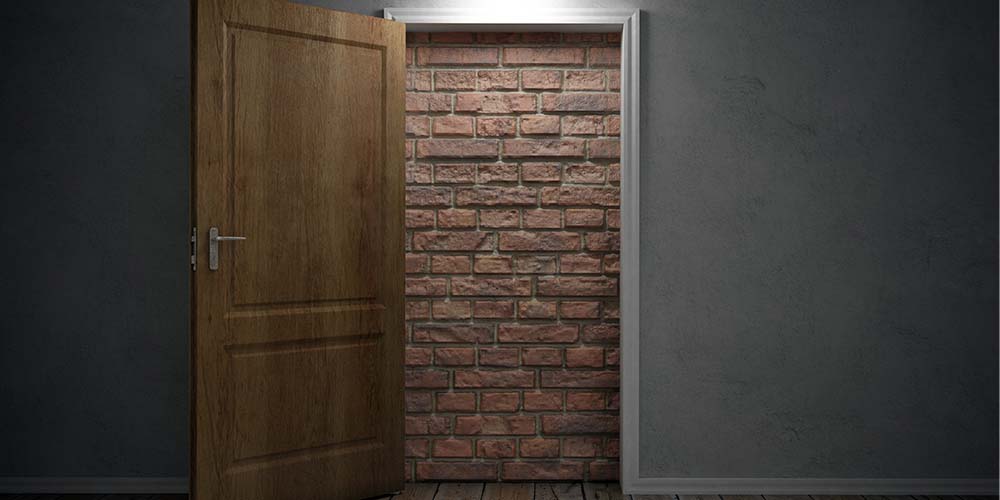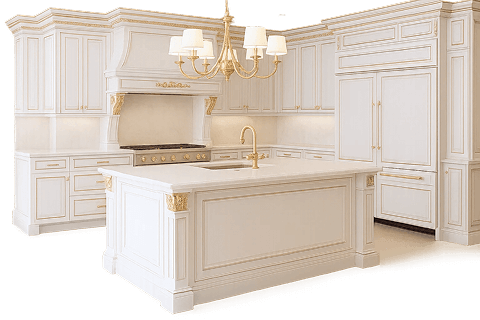Planning a home renovation Toronto consists of several factors that should be planned carefully. You may need a mortgage lender and financial advisor to ensure you make the right choices with regards to funding the project before figuring out how to turn the house into your dream home. Even when you want a simple remodel, you still need to factor all the considerations in the design to ensure the process goes smoothly. You can go the extra mile to talk to experts to ensure you do not omit any of the crucial elements before starting the job if you want to stay within budget.
 Remember, getting your renovation wrong is very expensive because it means buying materials, supplies, and fixtures all over again. It also messes with the timelines and is very stressful. One way to avoid making common renovation mistakes is to learn from the mistakes of others. Below are several such mistakes during home renovations and how to avoid them.
Remember, getting your renovation wrong is very expensive because it means buying materials, supplies, and fixtures all over again. It also messes with the timelines and is very stressful. One way to avoid making common renovation mistakes is to learn from the mistakes of others. Below are several such mistakes during home renovations and how to avoid them.
STARTING YOUR HOME RENOVATION TOO SOON
Buying a house and then starting renovation plans immediately is never a good idea. The best alternative is to live there for a short while before starting the search for home renovation contractors. Get used to the layout as you determine the storage place for various items and how natural elements like sunlight flow into the different rooms. Staying will give you a better understanding of the current design and help you maintain a clearer perspective when planning the changes. You will be able to make informed decisions before and during the renovation.
FAILURE TO GET A PERMIT
Some remodelling projects require permits and others do not. You should, therefore, research zoning and permits before the commencement of the project. Note that even if you do not get caught, you may have a problem selling your home if the work has not been approved. In addition, you risk suffering dire consequences if you fail to get a permit and something happens to the new homeowner because of your workmanship – he/she will have grounds to sue you. At Kitchen & Bathroom, we will assist you in getting all the necessary approvals.
CHANGING YOUR MIND MID-PROJECT
Avoid second-guessing yourself once the project starts. Simple changes like changing the location of an electrical outlet in your kitchen for a new toaster may seem like a simple add-on, but it is not. Changes, even the smallest of them, have cost implications, and they will mess up with timelines.
EXPECTING EVERYTHING DURING YOUR HOME RENOVATION TO GO ACCORDING TO THE PLAN
Planning is essential, but sometimes even the best plans go wrong. Chances of unexpected issues arising are higher when you are dealing with an older house. For example, it may be impossible to know whether the walls have fungi before demolishing them or if the subfloors are too damaged.
Unforeseen issues are less likely to spring up in new houses, but some aspects may still not go according to your plan. So always leave room for errors and uncertainties.
CHOOSING THE CHEAPEST RENOVATION CONTRACTORS
Getting the lowest estimate from a kitchen renovation company may be tempting, but accepting it may not be the smartest idea. Some renovators entice clients with cheaper estimates, but they fail to deliver quality workmanship or products when given the job.
Ask for written estimates from at least three home renovation contractors in Toronto and compare them with the offered services. Pay attention to the details listed, such as the cost of flooring and hardware materials and the installation costs. Other elements you should not ignore are waste disposal, permit charges, and outsourcing prices if at all they will get different contractors for some of the services. Let them explain how they intend to handle the work to show their thoroughness. Finally, remember to ask for a warranty.
TRYING TO BE TRENDY
Updated homes usually look great with an amazing aesthetic appeal, and they have a higher value. However, following the real estate trends and changing your house design to match the current trend can backfire because trends change constantly. Working with an interior designer to come up with lasting styles is better.
PURCHASING FURNITURE AND HOME DÉCOR TOO EARLY
The main problem likely to occur with early purchases of furniture and appliances is measurements. For best results, you must wait until the project progresses to near completion. It will then be easier to get accurate measurements for the appliances to fit the space perfectly. It also ensures you get the right quantities of flooring materials and other supplies for the job.
If possible, time the renovation to ensure you get the best deals when they are being offered. For instance, you can remodel the floors in November or December when most dealers issue great discounts for the holidays. Contractors also have fantastic offers during that period because of slow business.
MISMANAGING YOUR CONTRACTOR
As the homeowner, you know exactly what you want, but contractors are experts on the job, and there should be mutual respect. Even when things are not going how you want, find an amicable way of handling the issue.
FAILURE TO DO PROPER BUDGETING
Budgeting for a renovation project is tough because of the many moving parts. If this is your first renovation project, consider asking your contractor for budgeting tips. Whatever your budget, you should have 10% of the cost as a buffer.
NOT ASKING HOME RENOVATION CONTRACTORS ENOUGH QUESTIONS
It is okay to ask your contractor as many questions as possible until you feel satisfied by the explanation they give. Do not leave out any question, thinking it is dumb. Remember, you will give them a lot of money and should know exactly how it will be spent.
FOCUSING ON APPEARANCE
The condition of the internal elements of the property, such as the structural integrity and electrical fixtures’ safety, is also crucial. Update the plumbing system, the foundation, and subfloors instead of the finishes only. Focusing on the outward appearance only will result in more expensive repairs when the damage from the internal elements affects the visually pleasant finishes.
BUYING CHEAP HOME RENOVATION MATERIALS
In most cases, cheaper materials do not come in the same quality that expensive materials do. However, it does not mean you cannot get excellent discounts when you buy from the right suppliers. Invest in quality and long-lasting materials that will not require changing shortly after instead of supplies that will get damaged within weeks or months.
LETTING RENOVATION CONTRACTORS UPDATE THE WRONG THINGS
Do not focus on your immediate needs and wants only, but try to visualize what you’ll need in future as well. For instance, choose value-adding fixtures like cabinetry that will serve the growing needs of your family. Also, try not to ignore some of the essential areas, such as flooring.
DOING TOO MUCH BY YOURSELF
Most people do not understand the work that goes into renovations. Although renovations make for great DIY projects, you should avoid this common mistake because once you start you are likely to realize you do not have the time, skill, and even the tools necessary for the job. You should also consider separating the job (such as doing kitchen remodeling first and then doing bathroom remodeling once done).
NOT DOING DUE DILIGENCE WHEN HIRING THE CONTRACTOR
Not every contractor who is licensed is capable of doing a good job. The contractor you go for should have experience in the exact task at hand. He should be licensed and registered with the relevant professional bodies and he should be bonded. You should also insist he has workman’s compensation insurance for the crew. Do proper vetting by asking for referrals and reading reviews and testimonials.
NOT SETTING UP A TIMELINE WITH YOUR HOME RENOVATION CONTRACTORS
Most of the good contractors will create a timeline when issuing an estimate. Work with the contractor to create a suitable timeline for purchasing the supplies and completing the various phases of the renovation. Failure to do so can lead to pressure at the last minute, which will cause you to choose fixtures that you end up regretting later hurriedly.
DO YOU REALLY WANT HARDWOOD FLOORS?
Hardwood floors may have an unmatched luxurious feel, but they are not ideal for every situation. Before spending a lot of money on them, consider your living conditions and whether you will have the time to maintain them. For example, they are not suitable for homes with pets or younger children due to possible scratching and wear and tear. Look for alternatives like laminate that are aesthetically pleasing but more durable.
IGNORING THE DETAILS
Ignoring the details can end up costing you a lot of money when you choose the wrong materials. Instead, consider the elements that can directly make the renovation go smoothly with the best outcomes. For instance, when you pay attention, you will realize that storage fixtures, such as pantries, can cost more when added later than if dealt with during the renovation. Thus, you will end up saving a lot of time and money.
REPLACING WINDOWS
Never replace windows that are still in good shape and can be better with a revamp, especially if they were originally installed when the house was built. However, you can add storm windows if you are concerned about energy efficiency in the house. Not all window replacements will add value to the home or help you make savings by lowering energy consumption. As such, be wary of contractors that insist you buy new windows even when the old ones are still in good condition.
WAITING TOO LONG TO CONSULT GENERAL HOME RENOVATION CONTRACTOR
General home renovation contractors can give you a different perspective from what specialists in specific areas are telling you. They can help you understand what works and how to infuse various fixtures together for the best results. They can also use their experience to help you identify the areas you may have overlooked during planning. Working closely with general renovation contractors will ensure you get efficient and functional designs, so you do not give up practicality for aesthetic appeal.
MAKING TOO MUCH CHANGES ALONG THE WAY
Some of the changes that may seem easy and straightforward to the homeowner can be daunting to the contractor during the renovation. Sometimes the smallest changes require doing a lot of work in the background, which leads to additional costs. For example, you could end up spending an extra $1,500 to move a light switch to a different location in the same room. Minimize the changes, but if you must, consult the designer first.
LETTING HOME RENOVATION CONTRACTOR USE THE WRONG PAINT
Every room in the house can have a different paint and still look great. You can select them depending on the purpose of the room and its occupants, but you have to be careful to ensure the finishes blend and provide a seamless flow through the house. For example, use matte finishes on the ceiling to give them a receding illusion. Satin finishes should be in rooms that you want to reflect light. High or semi-gloss finishes will be great for spaces that require regular cleaning.
OVERBUILDING
Although having a unique property is a good thing, try not to contrast too much with the others in your area. You may end up with a house that looks out of place, which may make it impossible to get good returns or find buyers when you need them.
SETTING UNREALISTIC EXPECTATIONS FOR YOUR HOME RENOVATION
Home constructions during renovations are very noisy and messy at the very least. Expecting otherwise will only bring you disappointments. Research more on the kind of work you want to be done to understand what will happen before, during, and after the job commences.
Having the remodel in winter instead of summer or spring may also be better because contractors are less busy. It will be easier to negotiate with them to get the best deals and save a lot of money as a result. Remember to ask for estimates from multiple companies and always include possible mishaps in the budget. Allocate some money for things that may not go according to plan.
You can also ask your contractor about the process for a better understanding.
MEASURING INCORRECTLY
If you are handling the renovation as a DIY, getting the measurements correctly is one of the essential factors you must get right. You can follow the popular saying “measure twice but cut once” to avoid incurring losses and wasting resources. However, you have to be precise because the slightest mistake, getting even half an inch wrong, can result in ill-fitting fixtures.
SPENDING TOO MUCH ON TECH
Technology is alluring, but it also goes out of date quickly. So you have to be careful about the technological features you add to the house and the kind of value they bring. For example, make sure wiring all the rooms for video connectivity will have great returns on investment before splashing money on it.
WORKING ON TOO MANY ROOMS DURING HOME RENOVATION AT ONCE
Given the expensive nature of home renovations, working on each room separately is a good idea. Start with the main living area, then renovate the shared rooms like the kitchen. This approach will ensure you pay attention to each room until its completion instead of doing a little work in the entire house at the same time, which will only frustrate you. Instead, focus on the space that you spend most of your time in first. Then when done and you still have some funds left, remodel the next room.
IGNORING LIGHTING
Lighting fixtures can give the most excellent transformations when they are well thought out. Work with an electrician or lighting specialist to create a plan that works for your space and future goals. You can combine various aspects such as general lighting, smart lighting, accents, and task lighting for the best results.
SKIMPING ON HOME RENOVATION QUALITY
Working with a budget is a good idea, but do not skimp on items and fixtures you use every day. Appliances, storage cabinets, doors, faucets, and other similar hardware should be of the highest quality. They will improve the value of the home and remind your family and guests about its solidity.
DISREGARDING SAFETY
Even the smallest renovation works pose a safety risk. There is a risk of tool mishaps, ladder falling, roof and walls caving in, and many more. Have the necessary safety gear and if possible, get your family and pets out of the house for the duration of the project.
Other common mistakes to avoid are:
- Cutting corners when it comes to materials and fixtures
- Failure to consider the rest of the house décor when choosing designs
- Being too caught up in the latest trends (and sacrificing the budget and timelines)
Call Kitchen & Bath today at (647)697-7725 for tips on how to avoid common home renovations mistakes.





